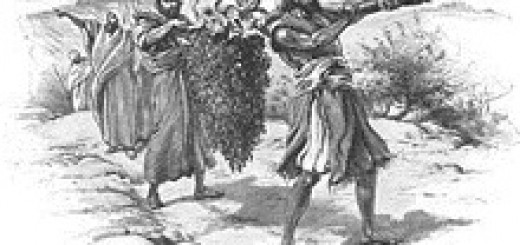By Avner Friedmann
This Shabbat we begin reading the book of Vayikra, which is known as Leviticus-“The Book of the Levites”. In a sense, it is the “how to” service manual for the Levites and Cohens (Priests) in the Holy Temple, the central service of which was the sacrifices. At the very beginning of the book Hashem instructs Moshe saying[1]: “Speak to the Children of Israel and say to them: When a man brings an offering from you to Hashem from the beast; from the oxen or from the flock shall you bring your offering”. This verse may be viewed as a general introduction to the subject of sacrifices and therefore bears a very important message.
The word “Sacrifice” in Hebrew comes from the Hebrew root “to come near” or “to approach” (קרב). On closer examination, we notice that the word “from you” (מכם) seems unnecessary for the simple understanding of the verse. However, it is there specifically to teach us that whenever we want to approach HaShem and come closer to Him, we must sacrifice something of ourselves. “From you” means, from your ego and animalistic (or beastly) soul. We each have animal souls with different characteristics. Some of us may have an animal soul that is similar to an “ox that gores” while others of us may have an animal soul of more refined and delicate nature, like a lamb. However, we need to know that no matter how coarse or refined our natural characteristics are, they need to be sublimated to the service G-d.
The Holy Zohar states[2] that when a Jew brought an offering to HaShem in the Holy Temple, he would visualize himself being sacrificed and consumed and that in doing so he was giving himself, body and soul, to Hashem. The Ramban[3] explains that when a Jew saw the sacrifice upon the altar, it made him feel that the blood being sprinkled was his own blood and that the sacrifice burning on the altar was his own body. HaShem, in His infinite mercy took the animal instead, but in reality it should have been him! This brought about a feeling of utter humility and self-nullification. It is this kind of sacrifice that Hashem truly desires of us in this world, that we give of ourselves – and this is more pleasing to Him than anything else[4].
The offering needed to be accompanied by repentance (teshuvah), confession and a sincere effort to draw near to Hashem. Only then did the offering have a true status as an “offering to Hashem”[5]. When this was so, Hashem had mercy upon the person bringing the sacrifice. He atoned for his sins and uplifted his animal soul[6]. The offering then became, “A satisfying aroma to Hashem”[7]. This term is exclusively used in regard to sacrifices and is mentioned numerous times in the Torah. However, if a person merely went through the motions of bringing a sacrifice without truly being remorseful and having the sincere desire and resolve to change for the good, the opposite of closeness would occur; he would actually be distancing himself from Hashem.
Ultimately, sacrifices are called chukim (statutes). These are Divine laws that are beyond human comprehension and make no logical sense to our human intellect. In other words, we do not do them because they make sense to us, but simply because G-d commanded it. When we fulfill HaShem’s will just because it is His will, this pleases Him greatly. As our sages put it, “I spoke and My will was done”[8]
Though nowadays we do not have a Holy Temple, we can still achieve something similar to it by mentioning the sacrifices in our prayers, as the prophet said[9]: “And let (the words of) our lips be a substitute for the oxen.” We request of Hashem to look favorably upon our good intentions and to accept our prayers and confessions in place of the sacrifices, and though today we do not have the ability to bring actual sacrifices, when a Jew is truly humble it is as though he brought the choicest sacrifice, as king David stated[10]: “The sacrifices of G-d are a broken spirit; O G-d, You will not despise a broken and contrite heart.”
Being humble is especially relevant in this season as we approach the holiday of Passover. We prepare by cleaning and removing all leavening (chametz) from our possession. Chametz symbolizes the ego and the evil inclination (Yetzer HaRa). Cleaning, searching, nullifying and burning the chametz are not meant to merely be external actions. When searching for chametz, we must also do some real soul-searching, in every recess of our soul, to the furthest of our reach.
May HaShem in His infinite kindness accept the sacrifice of our broken and contrite hearts. May He send our righteous Moshiach, rebuild the Holy Temple and re-institute the sacrificial service, with the true and complete redemption, speedily in our times.
[1] 1:2.
[2] Zohar Vayikra 9b. Also in Tzror Hamor Vayikra 1:2.
[3] Vayikra 1:9.
[4] Zohar Vayikra 9b.
[5] Tzror Hamor Vayikra 1:2.
[6] Chatam Sofer in Torat Moshe on Shemot 10:25.
[7] Vayikra 1:9.
[8] Rashi 1:9.
[9] Hosea 14:3.
[10] Psalms 51:19.






















